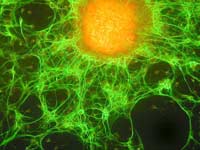Just In
- 2 hrs ago

- 6 hrs ago

- 10 hrs ago

- 10 hrs ago

Don't Miss
- News
 Chhattisgarh CM Urges Bastar Residents To Vote In Large Numbers
Chhattisgarh CM Urges Bastar Residents To Vote In Large Numbers - Movies
 Siren HD Leaked Online For Free Download Within Hours Of Its OTT Release
Siren HD Leaked Online For Free Download Within Hours Of Its OTT Release - Finance
 Rs 40/Share Dividend: Small Cap Under Rs 100 To Hit Ex-Date In 4-Days, Gains 74.21% In 1-Week
Rs 40/Share Dividend: Small Cap Under Rs 100 To Hit Ex-Date In 4-Days, Gains 74.21% In 1-Week - Technology
 itel Super Guru 4G Phone With UPI Support Launched in India; Check Price, Specifications
itel Super Guru 4G Phone With UPI Support Launched in India; Check Price, Specifications - Sports
 Why camera zoomed in on IPL 2024 coin toss after Sam Curran flipped it in front of Hardik Pandya in Mullanpur?
Why camera zoomed in on IPL 2024 coin toss after Sam Curran flipped it in front of Hardik Pandya in Mullanpur? - Automobiles
 India's Elections Trigger Airfare Surge in Tamil Nadu
India's Elections Trigger Airfare Surge in Tamil Nadu - Education
 Karnataka SSLC Result 2024 Soon, Know How to Check Through Website, SMS and Digilocker
Karnataka SSLC Result 2024 Soon, Know How to Check Through Website, SMS and Digilocker - Travel
Telangana's Waterfall: A Serene Escape Into Nature's Marvels
Drug For Anemic Cancer May Raise Death Risk!

The FDA approved drugs, called to boost their and health, can do so by possibly stimulating the growth of cancer cells.
The finding came to light after a meta-analysis of 51 trials involving a total of 13,613 patients.
The research team found that cancer patients who took ESAs had a 10 percent increased risk of death as compared to those patients who kept away from the drugs.
"The FDA says if you use the drug in moderation, it should be safe. But our findings, in conjunction with basic science studies, raise the concern that the drug may be stimulating cancer and shortening cancer patients' survival," said Charles Bennett, M.D., the lead author of the study.
It's troubling that 15 years after the drug came out, we finally came to this realization.
"It's troubling that 15 years after the drug came out, we finally came to this realization.
"The current FDA recommendation is these drugs are safe for cancer patients as long their hemoglobin levels aren't raised too high. Our data do not support that," he added.
Dr Stephen Lai, one of the study's co-authors who tested the response of cancer cells to an ESA called erythropoietin in the laboratory, said that the tests had shown that the dugs had a significant effect.
"We saw a dramatic change. Adding 'epo' (erythropoietin) to the cells increased their ability to migrate or invade. Our basic science findings and the clinical trial results suggest that giving cancer patients 'epo' for their anemia may actually cause their tumors to progress," he said.
The study also confirmed a previously known 57 percent increased risk of in the legs or lungs for cancer patients receiving ESAs.
Lai cautioned that various solid tumors such as breast cancer, colon cancer and melanoma may react differently to ESAs.
"The exact effect and size of that effect may be different depending upon the type of tumor. Additional research is clearly necessary, and we have to be careful about generalizing these results before further research is conducted," he said.
The study and its findings will be published in the Journal of the American Medical Association Wednesday, February 27.
-
 healthFDA Approves Most Expensive Drug Ever, Priced At $3.5 Million-Per-Dose For Hemophilia
healthFDA Approves Most Expensive Drug Ever, Priced At $3.5 Million-Per-Dose For Hemophilia -
 wellnessThe FDA Approved A New Drug Aduhelm To Treat Alzheimer’s, But Medicare Insurance Won’t Always Pay For It
wellnessThe FDA Approved A New Drug Aduhelm To Treat Alzheimer’s, But Medicare Insurance Won’t Always Pay For It -
 disorders cureCOVID-19: FDA Authorizes Blood Purification Device For Treatment Of Coronavirus
disorders cureCOVID-19: FDA Authorizes Blood Purification Device For Treatment Of Coronavirus -
 healthOver 40 Commonly Used Drugs Fail Latest Quality Test; Which Are They?
healthOver 40 Commonly Used Drugs Fail Latest Quality Test; Which Are They? -
 wellness1.58 Crore 10-17-Year-Olds Addicted: Tips For Staying Drug Free
wellness1.58 Crore 10-17-Year-Olds Addicted: Tips For Staying Drug Free -
 wellnessInternational Day Against Drug Abuse: Effects Of Drug Abuse On Teens, Treatment And Helpline Numbers
wellnessInternational Day Against Drug Abuse: Effects Of Drug Abuse On Teens, Treatment And Helpline Numbers -
 wellnessList Of Foods That Help Manage Drug And Alcohol Cravings
wellnessList Of Foods That Help Manage Drug And Alcohol Cravings -
 disorders cureCOVID-19 & Remdesivir: Coronavirus Patients Recover With Gilead’s Drug
disorders cureCOVID-19 & Remdesivir: Coronavirus Patients Recover With Gilead’s Drug -
 pulse#ThinkBeforeYouDope: Assam Police Takes Cue From 'Breaking Bad' Film For A Reason
pulse#ThinkBeforeYouDope: Assam Police Takes Cue From 'Breaking Bad' Film For A Reason -
 lifeWho Is Dr Herbert David Kleber? Why Has Google Created Doodle To Honour Him
lifeWho Is Dr Herbert David Kleber? Why Has Google Created Doodle To Honour Him -
 disorders curePharmacogenetics In Treating Epilepsy
disorders curePharmacogenetics In Treating Epilepsy -
 disorders cureSubstance Use Disorder: Causes, Symptoms, Stages, Risk Factors, Diagnosis, Treatment And Prevention
disorders cureSubstance Use Disorder: Causes, Symptoms, Stages, Risk Factors, Diagnosis, Treatment And Prevention


 Click it and Unblock the Notifications
Click it and Unblock the Notifications



